|
Editor's note: In honor of the Solemnity of Saints Peter and Paul, a new blogger for the Catholic Apostolate Center writes about the nature of Christian brotherhood and friendship. Check out our post from last year on Peter and Paul for a little background on these great friends and evangelists.
To my fellow Christian brothers, Nothing worth doing in life is easy, and the Christian ideal is certainly no exception. As the profound early 20th century apologist G.K. Chesterton said in his book What’s Wrong with the World, “The Christian ideal has not been tried and found wanting. It has been found difficult; and left untried.” Those who recognize the Cross are called, now more than ever, to take it up. But do not try to bear the Cross alone: find other men who have accepted the weight of the Cross and have allowed God to write it on their hearts. Bear your burdens together. When you bear the Cross with your brother, you begin to form a real friendship with him – one based in vulnerability. We don’t often bring up vulnerability when talking about manliness, but it is one of the most vital qualities to have in the effort towards holiness. When Christ became man, this was the ultimate act of vulnerability. It did not stop there, though. Christ exemplified perfect holiness through His ultimate sacrifice on the Cross. By getting to know the true nature of your brother, you enter into a state of vulnerability with him where you can then challenge him to make strides towards holiness. When I asked Brother Barnabas, a Benedictine monk at Saint Vincent College, to weigh in on the topic of manliness and male Christian friendship, he recalled a time when he lived in a house with some close friends. “There certainly was a time for fellowship, especially when we had visitors,” said Brother Barnabas, “but when it was just us men around the table, we used to say, ‘alright guys, armor off.’ That’s when we would truly expose our hearts to each other and allow the Holy Spirit to strengthen us.” The relationship Barnabas talks about is the sort of relationship that binds men together and transcends spending time with your “bros.” It’s the type of relationship that doesn’t necessarily seem intuitive for men. Our culture usually portrays women as the ones who are willing to be honest and open with one another. Men are supposed to be stoic and reserved – they’re supposed to bear their sufferings quietly. Yet, we need to have the courage to reveal our true selves with absolute honesty to other men. When needed, we must have the courage to make sacrifices for our brothers and allow them to make sacrifices for us too. The burden of the Cross becomes lighter when you have a brother bearing it beside you. In the daily effort of conversion to the will of God, having a true friend can sometimes make all the difference. The Christian ideal is not easy to follow. We as men must come together, leave the armor at the door, and allow the Lord to work through our cooperation in becoming holy together. As the Lord leads us to holiness, let us ask him in the name of the Father, and of the Son, and of the Holy Spirit to give us brothers for the journey. Amen. Question for Reflection: Do you have friends with whom you can be vulnerable? In what ways can you help your friends bear their crosses?
1 Comment
Lately, I have been reflecting on discipline as an important element of discipleship. What does the word discipline mean to you? Commitment, application, diligence, resolve, zeal, conscientiousness; these are all synonyms of the word discipline. Discipline and its synonyms imply a persistence, a willingness to do something difficult over and over in order to achieve a goal or to serve some purpose. Am I a dedicated disciple of Jesus Christ who is willing to discipline myself, physically and spiritually, body and soul, to be the best version of myself? Am I committed to using that self for the glory of Christ’s work on earth?
More often than not, the secular fitness industry attempts to convince people to be concerned with disciplining their bodies for aesthetic reasons. You should eat right, exercise, and get enough sleep so that your body conforms to a certain standard of beauty. The implication is that people who conform to this standard of beauty feel better about themselves, are admired more by other people and are more successful in life—but what if we cared about the health of our bodies because it was also bound up in the health of our souls? Scripture teaches us that the human body is made in the image of God, which the Catechism explains that “it is a human body precisely because it is animated by a spiritual soul” (CCC 364). This means that our bodies are not just our bodies: they are ensouled. That doesn’t mean that the body is just a container for the soul. Rather, “the unity of soul and body is so profound that one has to consider the soul to be the ‘form’ of the body: i.e., it is because of its spiritual soul that the body made of matter becomes a living, human body; spirit and matter, in man, are not two natures united, but rather their union forms a single nature” (my emphasis, CCC 365). The soul and the body are uniquely bound. The “form” of the soul organizes and determines the “matter” of the body—just as a collection of wooden planks can be organized by the form of “ship” or “house”. Thinking about all of this within the context of healthy living, understanding our human nature as the union of body and soul can help us to recognize the spiritual importance of caring for our material bodies. What if we took a walk, fueled our body with proper nutrition, or went to the gym because we knew that it would keep us more energized, focused, and alert to fulfilling God’s work on earth? The bodies that we have been given are a gift from God, and much like the rest of creation, it is our task to faithfully steward them. One way that we can live as faithful stewards of our bodies is to invite God into our daily choices. We can pray for the strength to take care of our bodies and when it feels like making a healthy choice is too difficult, we can offer up the sacrifice for someone else. The next time you are debating on whether to spend some time focusing on improving your bodily health, make the decision to offer the sacrifice of your time and energy for a specific intention. The intention can be for a family member, an acquaintance, a close friend, or perhaps a special intention that you are struggling with. “Offering it up” for another person is a form of “intercessory prayer,” which “leads us to pray as Jesus did” to God the father on behalf of others (CCC 2634). Offering the pain and suffering of bodily discomforts is a good way to continually remind yourself that your body is intimately connected to your spirit. Using your body for prayer is not a new idea in the Church. As Catholics, our worship and our sacraments are very sensorial. We cross ourselves, we kneel at the most important parts of Mass like the Consecration, and we use sacramentals like incense and holy water to orient ourselves in prayer to God. We should ask ourselves whether we are using our bodies properly during the spiritual activities of our week. Do we allow ourselves to be fully present and attentive at Mass by folding our hands in prayer and using our eyes to gaze upon the consecrated Body and Blood of Christ? When we genuflect or make the Sign of the Cross, do we muddle through the motions or do we execute each movement deliberately and with reverence? When we prepare ourselves for scriptural reflection or meditation, are we aware of the physical ways that we can help our bodies and brains to relax and focus so that we can bring all of our attention and faculties to Christ? Why should we be concerned with this idea of body AND soul? Our body and soul were designed as one; when we forget one for the other we are not living fully in service to our Lord. Let us use our bodies and souls in action and deed as one instrument for the Glory of God. Question for Reflection: How can I make my prayer more reverent by using my body? Who are they people in my life for whom I can offer up physical discomfort?
“GO, GONZAGA, G-O-N-Z-A-G-A!”
In recent memory, the basketball arena at Gonzaga University has been filled with that chant every season. Students and alumni alike gather together to celebrate their team, especially in March. People are excited—as they should be! Gonzaga is a Jesuit University in Spokane, Washington that is very well known for its basketball team. Every time they’ve made it to March Madness, there are always some commentators who ask, “Is it pronounced Gone-ZAY-ga, Gone-ZAH-ga, or gone-ZAG-uh” (it’s the latter, by the way). While Gonzaga is a great university and a great team, something that is often overlooked about the university is the great man for whom it is named. A man who, assuredly, would find it madness how many people are chanting his name every March. St. Aloysius Gonzaga, or “Luigi,” was born in Spain to an aristocratic family. As the first-born son, Luigi was raised to eventually inherit the entirety of his father’s fortune. Everything provided for him already, he was not required to work for a living. Instead, he was sent to the royal court at age ten to prepare for a life in the aristocracy. Yet, while serving the court, he saw the ways of nobility—filled with backstabbing, sex, and so many more things—and they seemed to him disgusting and vile. Exposed to and repulsed by these things, he vowed to God to never sin again. Little Luigi began to read in the family chapel at court about the lives of the saints. At the age of 11, he read a book about the Jesuits, who brought the Gospel to India. Luigi felt invigorated. He too wanted to bring the Good News to India or Africa with the Jesuits. Even with the aristocracy all attempting to convince him to stay, and his father threatening violence, Luigi left home at 17 to go to Rome and join the Society of Jesus. Six years later, he was dead. Luigi had been sent on mission—but not to India, or Africa, or even anywhere outside of Italy. He died after being sent to help the people, plague-ridden and dying, on the streets of Rome. While he was never ordained a priest, the epic journey of preaching the Gospel that Aloysius Gonzaga had dreamed about as a child did happen for him on the streets of his adopted home. Although young Luigi dreamed of serving the Lord in faraway, impoverish nations, the Lord showed him that even the people right outside of our windows need the Gospel. When we strive to live the Gospel, we must ask ourselves: have I shown the love of Christ to those around me? To my housemates and family members, to my neighbors a couple doors down? To those in my community? Not all missionary disciples are called to board a plane and serve abroad. Where ever our vocation takes us, we are called to be missionaries of Christ throughout our daily lives. Aloysius Gonzaga was beatified fourteen years after his death for his heroic virtue, which he demonstrated through his chosen life of simplicity and trust in the Lord. Maybe it is appropriate that we chant his name every year—and maybe we can all imitate the Gonzaga who gave up his servants to be one himself.
Have you ever made a bargain with God? I have—I do it all too often! “Listen Lord, I promise to pray every day and spend more time with you if you would just please fix… (fill in tough situation here).” I have come to the realization that I do this without being so explicit. I expect, subconsciously, that because I strive to be a “good” Christian my life’s outcome will be perfect, without suffering or challenges. I wrongly think that if I finally start walking in my identity as a beloved child of God then all my human sufferings will dissipate and my time on earth will contain a storybook ending. It’s a results-oriented mentality: if I put in good work, then I will get a “good” outcome, almost like a math equation. This realization was spurred from walking with friends who have been enduring profound suffering: childless friends who want the gift of a child, friends who have lost babies, friends who are waiting ever so patiently for their vocations, and friends who have been persevering faithfully through physical and mental trials. I have been wondering during prayer why these good people are getting such poor results. “This is not how it should work, Lord, they are good people, and they love you,” I tell Him. The problem with a results-oriented Christianity is that it typically results in disappointment—disappointment in yourself, and ultimately even doubt in God’s infinite goodness and love. Enter Mary, the Mother of our Lord Jesus Christ, who completely destroys this toxic thinking. A few of her titles are: Mother Most Pure, Virgin Most Powerful, Morning Star, Mother Most Chaste, Mother Most Faithful, Mirror of Justice—the titles continue, but the point is that she is the perfection of humanity. She is without sin. She prayed perfectly. She said “yes” to the Lord with total trust and love. In her goodness, Mary teaches us how to be good, how to be more like Her and Her Son. I used to struggle with Mary. I mean, she’s perfect. She’s called the Morning Star, for crying out loud! It’s a tad intimidating to attempt to imitate Her. Then, I pondered Her life’s “result” and Her humanity seemed more relatable. Though perfect, she experienced emotion, and she experienced deep suffering—from losing Her Son in the Temple, to standing at the foot of the Cross as Her Son gave the ultimate sacrifice for you and for me. I cannot imagine the pain Her Immaculate Heart suffered. The Mother of our Lord shows us that the Christian life is not one that lacks suffering—rather that the Christian life is one of faithfulness during times of joy and hardship. In her book Cause of Our Joy, Mother Mary Francis, a contemplative Poor Clare nun and spiritual writer, expounds on another Marian title, Mary Inviolate, meaning “being without violation.” One might look at the result of Mary’s life and see many “violations,” but her peace, trust, and humility in the Father’s Goodness surpassed any fear of suffering. Mother Mary Francis says, “With [Mary’s] help, I will not let every little thing that happens to me disturb me, break in on the peace of my heart, make fissures in my prayer, make cracks in my relationship with Jesus … She could suffer without being violated, so that she could go forward in her life inviolate, unassaulted, nonfissured, with no fortifications destroyed ... Only our reactions assault us. Other things can merely invite us to suffer with the Man of Sorrows and Our Lady of Sorrows” (Francis, 30). Suffering is always an invitation to grow closer to the Lord—to realize that we’re never alone. If we pray, trust, and hope through suffering like Mary did, then we start to move away from a results-oriented Christianity, where we treat our relationship with the Lord like a math equation, and toward true discipleship, where we follow wherever the Lord leads us. When we next encounter suffering—which is inevitable in the Christian Life—may we say “yes” as Mary always did. When we struggle through our suffering, may we go to Her open Heart that has suffered so greatly and there find the understanding, peace and love that only a Mother can tenderly bestow. Question for Reflection: Do I turn to God and His Mother like I would a beloved friend or family member when I suffer? Do I pray only for an alleviation or my suffering? Or do I “talk through” my struggles like I would with a friend or family member? How can I approach the Lord and His Mother like I would these confidants I have on Earth? We live in a world where social media creates a narrative of perfection and curated happiness. The constant pursuit of success, fulfillment and precision fuel our actions. We confuse modern ideals of self-interest, pleasure and minimalism with happiness. This false sense of happiness leads to a severe sense of discontent with our culture of appearances and deception. This, in turn, gives rise to the importance placed on truth and authenticity. Beneath the discontent we all feel is a shared desire to witness and live authentic lives. In a new film, “Pope Francis – A Man of His Word,” we watch the story of a man who practices what he preaches. In the movie, we hear from a religious sister who says that God gives us a pope who is a reflection of what we need in the current times. In a global society that is starved for genuineness, sincerity and truth, Pope Francis provides the world with simple, bite-sized snippets of profound wisdom that are easily understood. In one of those snippets of wisdom, our pope urges us to “Talk little, listen a lot.” As 1 John 3:18 says, “Children, let us love not in word or speech but in deed and truth.” Pope Francis shows us through his actions – washing the feet of inmates, providing a kind touch of prayer to sick children – that tenderness is strength and not weakness. I work in communications and in my profession we have a common phrase that says, “show, don’t tell.” Our culture yearns to see others living out honest, genuine values through action, not words. Pope Francis is an example of someone who shows us how to love and that love is a choice. Love is at the core of Jesus’ message. His teachings are those of love in action. Jesus tells us in Matthew 22:37-40 that the greatest commandments are to “love the Lord, your God, with all your heart, with all your soul, and with all your mind … You shall love your neighbor as yourself. The whole law and the prophets depend on these two commandments.” However, in order for us to love like Jesus, we must be free to give of ourselves to another. Freedom isn’t the ability to do whatever we want, when we want, where we want; it’s the ability to choose what is noble, true and right. Sometimes it seems that as a society we have lost our identities as free beings created by God to love and be loved. We forget that God placed the sense of longing for happiness in our hearts so that we may love him, ourselves and others. This yearning is designed to bring us closer to God and ultimately provides our fulfillment. Questions for Reflection: Who are the people in your life that show you how to freely love others? How can you show love for others in your own way using the gifts bestowed upon you by the Holy Spirit? What are some simple steps you can take to live out your life authentically? 6/9/2018 An Interview with Fr. General Jacob Nampudakam SAC on the 40th Anniversary of his ConsecrationRead NowFr. Jacob Nampudakam SAC is the Rector General of the Society of the Catholic Apostolate. He was elected in October 2010 and is the first non-European Rector General. This interviewed was conducted by Catholic Apostolate Center Program Associate Julianne Calzonetti in Rome, Italy.
1. Matthew 4:1-3a: Jesus spent 40 days in the dessert: What have been some of your greatest trials in 40 years? Two main trials: First, I am always in favour of life. Following Deuteronomy 30, 19-20, I had to make a choice between blessing or curse, life or death. God challenges us to choose life. In life we find hope; the ability to live in wonder, nurture in love, and not despair. Hence when members show a spirit of defeatism and negativity- without making efforts to create life- it is challenging. Nothing is achieved by being chronically negative. “Rather, the one who loves Christ is full of joy and radiates joy,” as Pope Francis reminds us. Second, when members become instruments of disunity rather than unity; allowing themselves to be guided by worldliness instead of the Spirit. This is the antithesis of Jesus Christ, who tells us that His Kingdom is not of this world. Following anything other than the Spirit will lead to confusion and destruction; a problem which then takes root in the afflicted person’s heart. Thus, internal problems become external situations, which are very difficult to handle. 2. Joshua 5:6 The Israelites walked 40 years in the desert: What has been your greatest moment of trusting the Lord? “Abandon yourself to God,” St. Vincent tells us, “with perfect confidence and do not fear.” In breathing these words, we are graced with the bravery God willingly gives to go forth and proclaim the Gospel to all creation. We can also use such words to explain two of our missions, Peru and Vietnam. If we lived in the world, we would say such ambitions were impossible, as they were taken up by entities with very few members. Yet instead they are flourishing; for in our steadfast courage and faith, the Lord blessed us in a hundredfold. The moral of the story is this: trust the Gospel. Take no purse, no haversack. He is with you. Another element of surprise was my election as Rector General. It’s not easy to break the frontiers and boundaries set by International Congregations, but when the fresh air of the Spirit blows through the windows, thy will be done. 3. Jesus remained on earth 40 days after his Resurrection: What is your hope and mission, father, for the remainder of your term as Rector General, as well as the remainder of your time as Jesus' anointed one on his earthly pilgrimage? First goal: Make our holy founder known and loved by as many as possible; to offer his charism of the Union of the Catholic Apostolate in service of the Church’s mission. Second goal: Give the compass to God, listen to the cries of His people, and “be led forth with peace” (Isaiah 55:12) to the peripheries. May we be the soul that God brings to their feet, so that they may have the life in abundance He has promised. In all my journeys, what my eyes have seen cannot leave me unaffected. But in each, the open wound of my heart remains the same: for the innocent children who are deprived of love, laughter, family, medicine, education… human dignities that no person on this earth should be denied. We all have equal rights for the blessings given to us by the Creator. To live in luxury disregarding the poor around us- like the parable of the rich man and Lazarus- would be the greatest sin of a Christian. We are all poor before God. 4. 40 is seen as a generation in the Bible. What has changed in the Society and Missions? What has been made better/worse? Everything changes. We try to discern and respond to the signs of the times. Yes, the Society has grown. We have reached out to as many as 56 countries around the world. There are about 2400 members in the Society, and then, of course, the entire Pallottine Family. The scenario in the Church and all the religious Congregations is changing; and it’s moving south. Though this makes no difference; I believe it matters little where we are growing or diminishing in any part of the world. The Church is one body of Christ. Through the consecration we make, we become members of the Society. As so often said by me on visitations, we may be Italians, Germans, Polish, Brazilians, Indians etc., but we are all Pallottines, and one family. I do not believe in lamenting over the decline in one part of the world or rejoicing too much about the growth elsewhere. Such things happened in the past and continue to happen today. Tomorrow has not yet come. The Spirit moves where it wills! Success or failure – let history judge us. 5. As this generation ends, God makes another anew, just as the papacy of Francis is evermore on target with the teachings of Pallotti in Gaudete. How will you lead us in following his papal mission? The greatness of any Christian must be measured by his or her fidelity to the life of Jesus as we encounter him in the Gospel. For me, Pope Francis is someone who lives the Gospel in its radicality. The will of God is our sanctification. There are 3 similarities between our holy founder and Francis: 1. The life of Jesus as the fundamental rule of life and apostolate; 2. A poor Church for the poor; 3. Go forth to the peripheries of human life. These three steps are only possible when the first is achieved: Encounter the person of Jesus in the Gospel on a daily basis. 6. India: You are the first non-European Rector General. What have been the changes over 40 years you have seen in your country? While India as a country is slowly coming of age, what strikes me is the tremendous contribution that the minority Church- 2% of the Catholic population- is making to the Universal Church. In our Society- and the Pallottine Family as a whole- the growth in India is tremendous. No doubt, we are not talking about a perfect situation in all areas, just as in any other part of the world. The unique contributions of the Indian Pallottines are most fruitful where we are able to be faithful to our rich, spiritual traditions and work zealously to be instruments of peace and communal harmony. The 58 schools run by the Pallottines, with thousands of teachers and students from all religions, could serve as the best instrument to promote unity and peace in a world divided by religious disharmony. The One Almighty and Loving God is the Creator of every human person created in His own image and likeness. The ability to respect and love every human being, regardless of his nationality, culture or creed, and be able to see the face of God on each person, will make us universal human beings. The future of the Society, the Church, and the world itself will depend much on this ability to go to the most profound ontological and existential level and be universal persons. Building walls is a sign of innate fear and insecurity. Having grown up in a multi-religious context in India, where we played and grew up with Hindu, Muslim and Sikh youngsters, it does not frighten me to deal with one of a different faith. Experiences mould us. Let’s open up as a Society and work for the common good. But firstly, let’s open up our hearts. That is exactly the work of the Holy Spirit; who opened up the newly founded Church on the day of Pentecost. 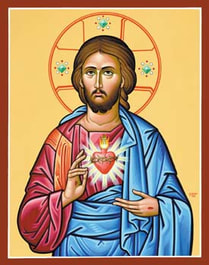 Whenever you think of Christianity, it is next to impossible to overlook the role and importance of love in the story of salvation. God’s love for us is one that is infinitely more enduring than any infatuation or passing attraction. It is one that gives and purifies, sacrifices and yields for the good of another -- again and again and again. God’s love is one that extends through, before, and beyond eternity and is ultimately expressed from Calvary to each and every person, fully, freely, and forever. The Church has dedicated the month of June to a reminder of the depth of God’s love: the devotion to the Sacred Heart of Jesus. In His Most Sacred Heart, we see how absolutely consumed with love God is for us — so much so that He was willing to bear those heinous wounds, false accusations and derisions, and even His death in order to grant salvation for all. Artistic depictions of the Sacred Heart remind us of the torment Christ endured on our behalf: the heart is wrapped in a crown of thorns, pierced, bleeding, and aflame with a cross rising from the tongues of fire. The visible wounds of Christ’s heart reveal His invisible love. Thus, devotion to the Sacred Heart is described as “devotion to the love of Jesus Christ in so far as this love is recalled and symbolically represented to us by His Heart of Flesh.” As creatures that have both soul and body, bodily representations of Christ’s love sometimes touch us in ways that words do not. The Sacred Heart teaches us that authentic love incurs great costs, but it also always gives life. Historically, devotion to the Sacred Heart is believed to have grown from another devotion to Jesus’ body: the Sacred Wounds of Christ from His Passion. Saint Bernard of Clairvaux said that the piercing of Christ’s side revealed His goodness and the charity of His heart for us: “How good and pleasant it is to dwell in the Heart of Jesus! Who is there who does not love a Heart so wounded? Who can refuse a return of love to a Heart so loving?” Other religious and saints, such as Francis of Assisi, have themselves exemplified closeness to the love poured out by Christ’s Five Wounds and Sacred Heart. The devotion as it is most commonly known today is said to have begun with the 1673 appearance of our Lord to St. Margaret Mary Alacoque, a French nun of the Order of the Visitation of Holy Mary. Over a series of visits, Our Lord revealed to St. Margaret Mary the importance of devotion to His Sacred Heart: "Behold the Heart which has so loved men that it has spared nothing, even to exhausting and consuming Itself, in order to testify Its love … But what I feel most keenly is that it is hearts which are consecrated to Me, that treat Me thus. Therefore, I ask of you that the Friday after the Octave of Corpus Christi be set apart for a special Feast to honor My Heart, by communicating on that day, and making reparation to It by a solemn act, in order to make amends for the indignities which It has received during the time It has been exposed on the altars. I promise you that My Heart shall expand Itself to shed in abundance the influence of Its Divine Love upon those who shall thus honor It, and cause It to be honored." In 1856, the Solemnity of the Sacred Heart was officially added to the liturgical calendar — the day before the Memorial of the Immaculate Heart of the Blessed Virgin Mary. The faithful have several options for honoring the Sacred Heart as requested by our Lord:
The Love that Christ continually showers on us should totally consume us. Christ’s death is an infinitely huge debt that we can never repay—but in His infinitely huge capacity to love and be merciful, all our Lord asks in return is our love. As we are invited to share in His Divine Love, we are called to let that love change us to become better disciples and better witnesses. Most of all, let us strive to become authors of great love stories, never ceasing to wonder at the incredible truth that the God of the Universe loves us! The Solemnity of the Most Sacred Heart is also the World Day of Prayer for the Sanctification of Priests. Please pray for the priests in your parish and any other priests who have touched your life! “The word of God nourishes both evangelizers and those who are being evangelized so that each one may continue to grow in his or her Christian life” – National Directory of Catechesis Over the last 40 years, the United States Conference of Catholic Bishops (USCCB) has especially recognized the importance of catechists in the process of evangelization by reserving the third Sunday in September as “Catechetical Sunday.” Catechetical Sunday commemorates and celebrates the ministry of formal catechesis, which is the systematic teaching of the tenets of the Catholic faith in order to help others know more about God and his Church. This ministry has had a significant role in my life over the past four years and across two different dioceses. There is something amazing about trying to explain the Old Testament prophets to a group of 6th grade students, a majority of whom has never heard the likes of Jeremiah, Isaiah, Elijah, etc. I love seeing the excited faces of students that either know or are interested in the subject of my teaching, while the blank ones challenge me to find compelling ways to make the faith a living part of their lives. On Catechetical Sunday, parishes, including where I have served, have a particular ritual: before the recessional at the end of Mass, the celebrant asks all who are called to serve as catechists to stand and receive a blessing for their work throughout the year. This serves two purposes: it helps the catechist understand the importance of their teaching role in the parish and also serves as a moment of reflection for the rest of the congregation. The influence of a catechist on a young life cannot be understated. Below are a few tips I’ve learned throughout my time as a catechist that can help those interested in pursuing the ministry of catechetical formation.
Catechetical Sunday reminds us of our individual roles in the evangelization of the baptized. In our small way, my fellow catechists and I—men and women from all walks of life and individual faith journeys—try to sow the fruits of faith for the next generation of disciples. Pulling from my toolkit, I will leave you with a blessing for catechists: “Lord God, source of all wisdom and knowledge, you sent your Son, Jesus Christ, to live among us and to proclaim his message of faith, hope, and love to all nations. In your goodness bless our brothers and sisters who have offered themselves as catechists for your Church. Strengthen them with your gifts, that they may teach by word and by example the truth that comes from you.”
6/1/2018 Remarks on Accepting the Gaudium et Spes Award from the National Association for Lay MinistryRead NowToday, the Catholic Apostolate Center and our Director, Fr. Frank Donio, S.A.C., were honored with the Gaudium et Spes Award from the National Association for Lay Ministry (NALM) at an awards luncheon jointly hosted by NALM and National Conference of Catechetical Leadership (NCCL).
The award recognizes an outstanding individual or organization for promoting understanding of the Church in the world according to the vision of Vatican II. It is the highest honor that the association can bestow. Although the award has been given eighteen times since its inception in 1989, NALM has only recognized an individual and an organization together once before. Fr. Frank and the Center were chosen for this award because of the extensive collaboration they engage in through his ministry as a Pallottine priest and the work of the Center. The Center was recognized for its ability to provide extensive resources to individuals and ministries so that many can revive faith, rekindle charity, and form apostles. National Association for Lay Ministry Gaudium et Spes Award Catholic Apostolate Center and Fr. Frank Donio, S.A.C. Chicago, IL June 1, 2018 On behalf of the entire Catholic Apostolate Center team working on three continents, I wish to thank Deacon Keith Davis, his predecessor as Board Chair, Mark Erdosy, the National Association for Lay Ministry Board of Directors and the members of NALM for this Gaudium et Spes Award. In recognizing the Center and me, you are also recognizing the charism of St. Vincent Pallotti. He believed that all are called to be apostles and created in Rome in 1835 a co-responsible and collaborative association of lay people, religious, and clergy called the Union of Catholic Apostolate; whose mission was and is to be what he called “an evangelical trumpet, perpetually calling everyone and awakening the zeal and charity of all the faithful” (OOCC I, 4-5). You are also recognizing my fellow members of the Immaculate Conception Province of the Society of the Catholic Apostolate, the Pallottine Fathers and Brothers, who as a Province have an almost seventy-year commitment to lay apostolate and after Vatican II to lay ministry as well, including founding the Catholic Apostolate Center in 2011 as an official ministry of the Province. Finally, and very importantly, you are recognizing the team of mostly young adults who comprise the staff of the Catholic Apostolate Center. The Center, while not a young adult organization, is an organization that is open and welcoming to young adults. We provide accompaniment and mentorship and show how that can be done not only with peers, but with all in Church leadership. We welcome and utilize the creativity of young adults and provide leadership opportunities. All of this is also done in collaboration with many Church entities such as the USCCB, various national Catholic organizations, including all the sponsoring groups of this conference, dioceses, movements, and associations as well long-serving professionals in ministry. We use collaborative and technological means to accomplish our mission to provide formative evangelization resources for active Catholics to help them become apostles or missionary disciples sent to assist others in encountering Jesus Christ and the Church. We develop greater collaboration and co-responsibility among Catholic leaders. We do this through living our vision that comes to us from St. Vincent Pallotti – reviving faith, rekindling charity, and forming apostles. Our hope is that our model of a Catholic organization, ever open to the initiative of the Holy Spirit, can assist others in moving beyond “We have always done it this way” (Evangelii Gaudium, 33), while at the same time keeping continuity with the tradition and teachings of the Church. Again, many thanks to the National Association for Lay Ministry for this recognition. We promise to deepen our efforts to assist the Church in its “duty of scrutinizing the signs of the times and of interpreting them in the light of the Gospel” (Gaudium et Spes, 4). May the Charity of Christ urge us on! |
Details
Archives
July 2024
Categories
All
|
About |
Media |
© COPYRIGHT 2024 | ALL RIGHTS RESERVED

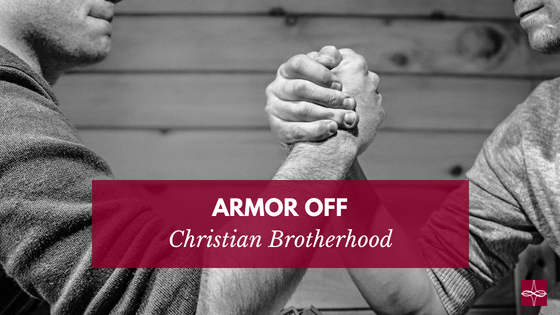

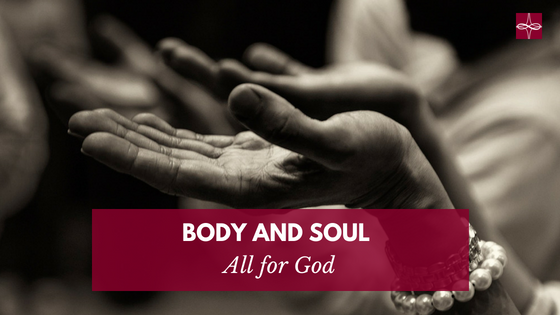

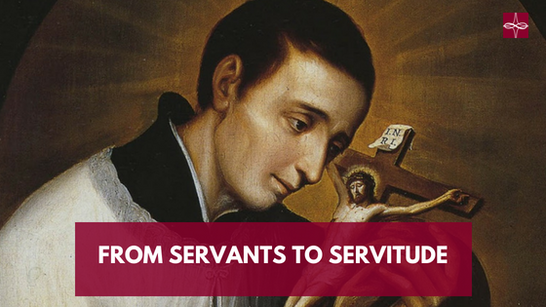

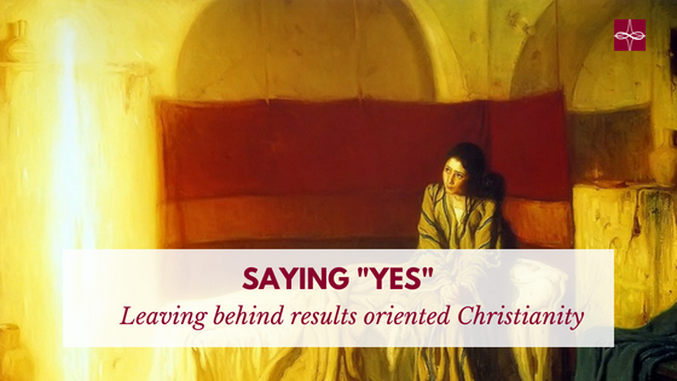

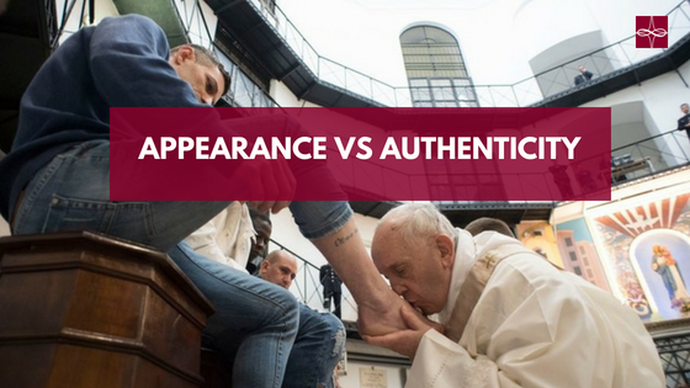

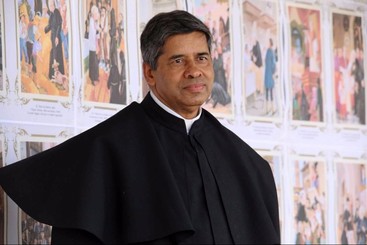
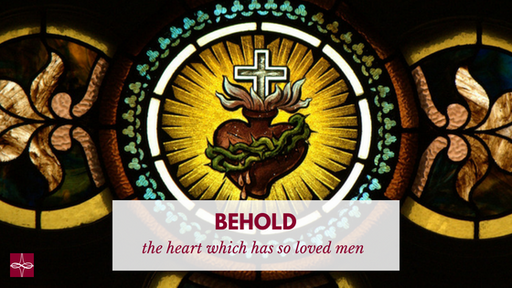

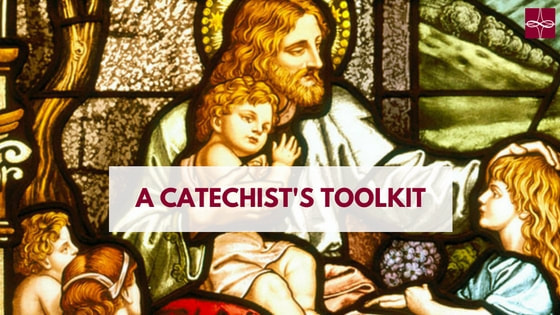

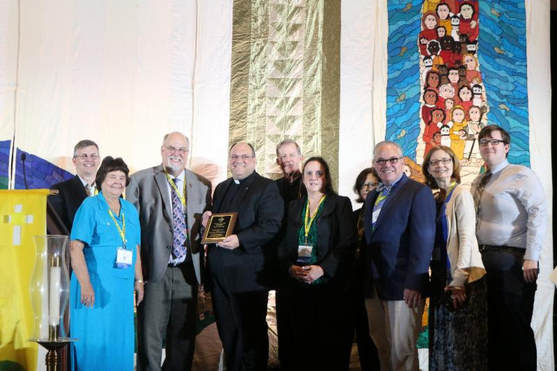
 RSS Feed
RSS Feed